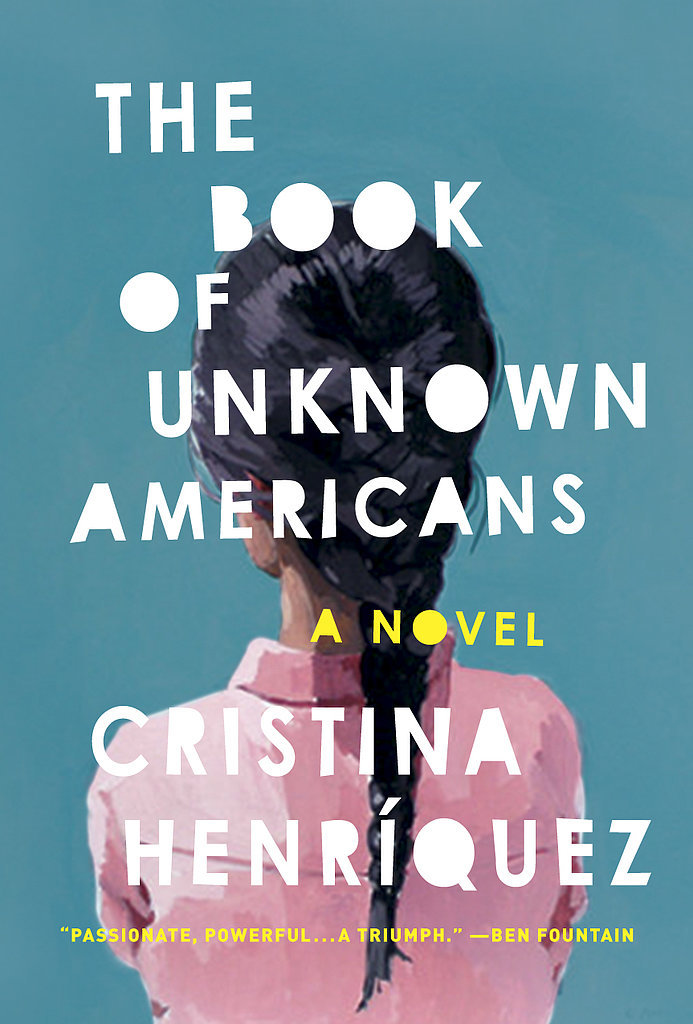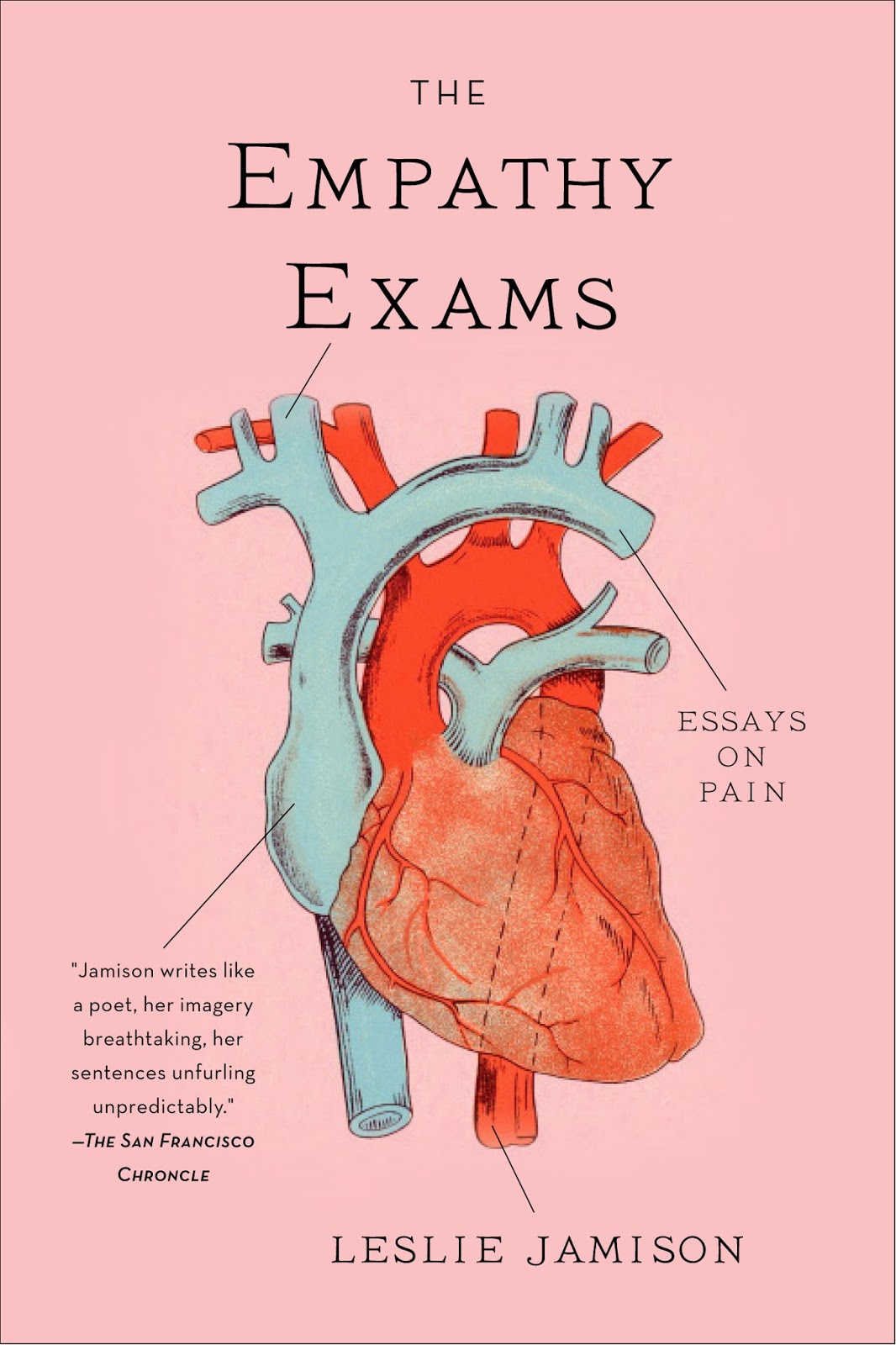Here's a sense memory that's been caught in my brain since I was 10 years old: reading a book in a warm room, sunlight streaming in through thin curtains, bare feet tucked between couch cushions, sucking on a sugar-coated lemon. But this isn't a scene from my own life. It's one my 5th-grade teacher, Mrs. Saum, recounted in front of our class once. Mrs. Saum had round glasses and a Sarah-Plain-and-Tall braid, and just as quickly as she recalled those lazy afternoons spent with her mother to us, she snapped out of her reverie: "But don't suck on lemons," she said, pointing a slim finger at the collective face of the classroom. "They'll rot your teeth. We just didn't know it back then."
Still, that image remains a gauzy, romantic thing lodged in my brain and one of my fantasies about reading: that the experience can be emotional and intellectual, but also tangible and physical. Maybe it's why I've always read a lot, in some endless quest to capture that imagined, sun-soaked bliss. (Maybe it's also why I never really warmed to my Kindle.) This year, I chased it more than ever. It was partly a disciplined effort — I set a rather modest goal of reading at least three books each month, in addition to literary magazines, essays, newspaper and magazine articles — and partly because everywhere I turned someone had turned out another unwavering and true and heart-busting piece of writing I simply had to give into. Without further ado, here are 14 great things I read in 2014. They are poems, they are essays, they are books, they are even Twitter feeds. But they all encouraged me to take up temporary residence in a new corner of my brain or feel something unique or unfamiliar, whether I read them in a warm, sunlit room or (more often) at a cold desk.
- "The Empathy Exams" by Leslie Jamison. Leslie Jamison's essays are the kind of ruminations that encourage readers to wander inside ideas shoulder-to-shoulder with the writer. "The Devil's Bait," about people who suffer from the medically dubious disease Morgellons, crystallizes Jamison's approach: she is devoted to doing best work to understand that which she realizes she might never be able to fully understand, to channel and honor the anguish of others, to explain ourselves to ourselves. I debated including this collection since it has already popped up on nearly every "best books of 2014" list, but in the end, I'm happy to add my voice to the chorus. It's a book that will make you feel more human and demand your caring.
- "In the Absence of Sparrows" by Daniel Johnson. James Foley's murder disturbed me deeply. But this poem, by his longtime friend Daniel Johnson, is a remembrance of the war journalist who was many more things than a war journalist to the people who knew him best. It brings some context to a life rendered — for most of us — only in the blur of TV-news segments, with language stark and yearning and more indelible than the 24/7 news cycle ever allows.
- "The Book of Unknown Americans" by Cristina Henriquez. My favorite novel of the year. A group of South and Central American families, living improbably in a Delaware apartment complex, become entangled in each others' uncertain lives in myriad ways. Cristina Henriquez's plain-spoken language captures the small heartaches and joys that define a life and succeeds in creating one of the most vibrant, real depictions of first love I've ever read on the page.
- "Twenty-Two Years Ago, I Asked My Dad if He Was Gay. Then He Was Gone" by Whitney Joiner for Slate Whitney Joiner's essay shovels down deep to the bedrock of the man her father — who died of AIDS when she was just a teenager and never was able to tell her he was gay — was. Despite the very specific circumstances of their lives, which is rendered with the unflinching directness of youth in her writing, she speaks to something about parent-child relationships in all their gradiations; the way our parents remain a strange, hyper-close enigma for most of us in childhood, like a star familiar and constant but held at a distance out of our reach. With this remembrance, Joiner pays tribute to the man her father was, publicly and privately, in the way each human deserves but not all get to experience.
- "The Trip to Echo Spring: On Writers and Drinking" by Olivia Laing Writing and drinking have been bedfellows for centuries, and in this well-researched but lively history, Laing sets out on an all-American road trip to unravel the particular love affairs some of our best writers have had with alcohol. Laing doesn't fret over or sidestep the romantic image of the drunken, tortured artist, but instead shows how drink alternately defined and destroyed the lives and work of F. Scott Fitzgerald, John Cheever, Ernest Hemingway, Raymond Carver, and John Berryman, and (maybe my personal favorite of the bunch) the incomparable Tennessee Williams.
- "Father-Daughter Dance" by Anne Helen Peterson for LA Review of Books. Anne Helen Peterson, a college professor who recently absconded from academia for a post at Buzzfeed, simply writes some of the best stuff out there about TV and humanity. This essay on "Mad Men" and the relationship between Don and Sally Draper deftly closes its hands around that "the feeling of Dadness." A nostalgic look at the fallability of fathers and the strange demands we make of parents, it also captures the imperceptible flashes in which our relationships change and morph, and argues that our best TV shows might be best just for letting these subtle moments exist. (I just noticed that I included two father-daughter stories on this list. Are any of you therapists?)
- "Creativity Creep" by Joshua Rothman for The New Yorker. "Make stuff" might be the mantra for the modern creative, but Joshua Rothman's essay asks us to revisit a lost definition of creativity: as a way of thinking rather than production, more in the mold of the Romantic idea of the word than our 21st-century iteration. A refreshing and original criticism of our culture's "creativity" obsession, which so often focuses on things and stuff and monetization rather than an approach to living a certain kind of intellectual life.
- "Miss Adele Amidst the Corsets" by Zadie Smith for The Paris Review Zadie Smith has an almost supernatural power to channel the voices and brains and lives of others like some kind of literary medium. In this short story, she captures the indignities of an aging drag queen, Miss Adele, who just wants to buy a goddamn corset, with a bullet train's pace and force.
- "Zoo Animals and Their Discontents" by Alex Halberstadt for the New York Times Dr. Vint Virga doesn't speak to his patients, but he still manages to hear a litany of their complaints, fears, and pains. He's devoted his life to shepherding better lives for animals in captivity, and as research continues to uncover more about the inner lives and feelings of the creatures we share the planet with, this aim seems more morally necessary than ever. This fascinating story follows Virga as he tries to help Alice (a constipated elephant), Molly (a pathologically fearful sheep), and BaHee (a withdrawn gibbon) while illuminating new ideas and science about just what might be going on inside the brains (and souls) of animals.
- "Difference Maker" by Meghan Daum, excerpted from "The Unspeakable." I had the pleasure of meeting Meghan Daum once, many years ago, when she spoke in my professor Dinah Lenney's personal essay class in the masters program at USC. I was already an admirer of hers then, of the memoir I'd read and the insightful pieces she wrote as a columnist for The LA Times. This piece about her work with an orphaned teen and how it dovetailed with her own ambivalence about parenthood busts apart so many deeply held ideas about the shape our lives, and especially women's lives, should take. It talks about privilege and pain and the unbridgeable distance between people and that endless quest for some semblance of peace most of us travel our entire lives. It is spellbinding and now I can't wait to read the rest of her book.
- "Up From Pain" by Charles Blow, excerpted from "Fire Shut Up in My Bones." I first came to know Charles Blow as a sort of anti-pundit pundit. A fixture on cable news programs, he was the rare guest unconcerned with getting the last word — maybe because he always had the best word. Off screen, his essays on politics and race for The New York Times always shocked me in the eloquence they managed to wrest from the demands of deadline writing. But this harsh and tender essay about abuse, sexuality, blame, and how we define ourselves introduced me to yet another side of the author and thinker; fiercely personal, unabashedly willing to wallow in the things that deserve wallowing in, and a person whose deep well of humanity stunned me to my core.
Melissa Broder's Twitter feed. I have to stop myself from retweeting every single thing poet Melissa Broder commits to her feed. Her irreverent mashups of nihilistic philosophies — rendered in Valley Girl speak via the filter of text message lingo — will sometimes strike me as fucking hilarious or, at other times, gut me for a brief and terrible moment, depending on when I read them. Like: "just gonna let u do existence and i'll pretend 2 watch," which is equal parts ice-cold bravado and hovering-right-up-at-the-surface pain.
"Thirteen Ways of (Not) Looking at a Crime Scene" by Travis Mushett for Blunderbuss. 2014: the year in voyeurism. Everywhere we looked over the past 12 months we saw or heard something we had not been intended to see or hear. The naked bodies of actresses. The private emails of Hollywood executives. Beheadings. The unhinged, racist ramblings of billionaires. "When we claim the right to stare at each other from all angles, we implicitly demand that everyone always act as one-sized-fits-all people," Travis Mushett writes in his essay on the desire and revulsion that comes with observing. "People for all contexts, homogenized people. That is, we demand that people not act like people at all." A powerful, poetic treatise on when we should look . . . and when we should look away.
- "another day, another vow not to discuss politics on facebook" by Marty McConnell. "When I’m doing it right, this life/ is sweeter and more lethal/ than I could ever have imagined" From those first livewire, unforgettable lines, McConnell's poem slices deep and wild at the noisiness and bravado of our online selves and modern living. It's the kind of writing that makes me hopeful it might convert more people to poetry, which she proves is just as relevant and exciting a form as it ever has been.
HONORABLE MENTION:
- "When I Commented That I Was 'Literally Peeing My Pants and Dying Right Now,' I Meant It." by Jen Cordery for McSweeney's This truly deserves a spot in the classic McSweeney's vault alongside "It's Decorative Gourd Season, Motherfuckers." A send-up of our insane culture of hyperbole that will also make you feel like you are peeing your pants and dying (just hopefully not literally as in the case of its narrator.)



